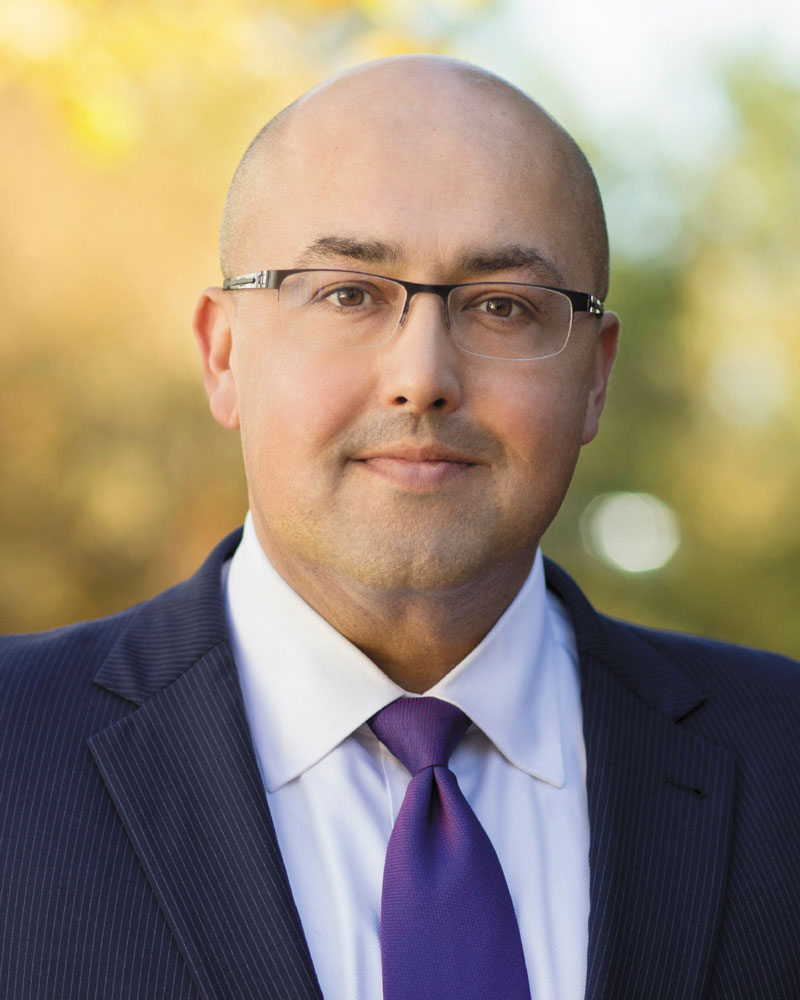Dislike
Professor’s work paints alarming portrait of Facebook’s power

“The problem with Facebook is Facebook.”
So argues UVA media studies professor Siva Vaidhyanathan in his recently released book, Anti-Social Media: How Facebook Disconnects Us and Undermines Democracy. A sweeping indictment of the social-media behemoth that boasts some 2.2 billion users worldwide, Vaidhyanathan’s book argues that Facebook is not merely a time-wasting distraction but an actively destructive force undermining the foundations of democratic society. And yet, the author argues, Facebook is inescapable—and we are all trapped in its grip.

This unsettling message is delivered by way of an extended analysis both of Facebook’s effects and its flaws. “Basically there are two things wrong with Facebook: how it works and how people use it,” Vaidhyanathan writes, outlining how Facebook encourages superficial engagement, erodes meaningful reflection and exchange, undermines trust, eviscerates privacy, and by its design not only enables the spread of misleading and inflammatory information but actively serves to “amplify the crazy,” as Vaidhyanathan puts it. Algorithms indiscriminately promote whatever gets the most reactions on the site, whether that is heartwarming videos, calculated disinformation or incendiary conspiracy theories. “It’s a performance-enhancing drug to collective stupidity,” Vaidhyanathan says.
Vaidhyanathan’s book coincides with a flood of damning revelations about Facebook: about how extensively user data has been both explicitly shared and accidentally exposed without users’ knowledge or permission; about the company’s efforts to obfuscate its practices, dissemble on its failures and mount attacks against its critics; and about Russia’s widespread efforts to interfere with and influence the 2016 U.S. presidential election. In fact, perhaps the most alarming of the arguments Vaidhyanathan presents in his book is how effectively Facebook’s capabilities have been harnessed by hate groups, extremists, autocratic regimes, terrorist organizations and other nefarious actors to promote propaganda, target opponents and even incite violence. “If you wanted to design a media system to support authoritarian leaders and antidemocratic movements, you could not do much better than Facebook,” Vaidhyanathan writes.
In the book, Vaidhyanathan suggests that Facebook’s founders failed to anticipate this outcome. “A service that has invited more than 2.2 billion people to use it habitually and promiscuously for all sorts of purposes cannot expect all those people to behave well,” he writes. And yet, Vaidhyanathan argues, Facebook fell prey to “the hubris of good intentions” embodied in the rosy-hued vision of its mission “to give people the power to build community and bring the world closer together.” Vaidhyanathan characterizes Facebook founder Mark Zuckerberg as sincere and idealistic, but “profoundly uneducated,” someone who continues to maintain a blind faith in the idea that “with more data and better code we can improve anything.”

And it is that data, of course, that makes us valuable to Facebook. Vaidhyanathan—who freely admits to his own social-media habit—compares Facebook to junk food, designed to keep us mindlessly and unreflectively reaching for more of its endless scroll of distractions. The more time we spend on the platform, the more data we generate—images, comments, “likes,” shares, clicks, messages, RSVPs—and the more Facebook knows about us.
As the owner of four of the world’s top six social media platforms—Instagram, WhatsApp, Messenger and Facebook itself—this one corporation has compiled an unimaginably detailed database of personal information not only about its users but, Vaidhyanathan insists, many other people as well. Even if you don’t have an account, Facebook knows more about you than you can imagine—information amassed and digitally cross-referenced from sources including purchased lists, public records and the enormous volume of material (hundreds of millions of photos alone every day) added by users. And it’s increasingly evident that even Facebook doesn’t know where all that data is going or how it is being used.
“And there is nothing anyone can do about that,” Vaidhyanathan writes.
Quitting Facebook won’t help, Vaidhyanathan tells Virginia Magazine. The company’s reach is too vast, the number of users too great, its services too entrenched in how we connect, communicate, do business and share information. “We are trapped,” Vaidhyanathan says flatly. “There is no way to imagine that all of us are suddenly going to do something else when there is no comparable service that can hold all of us.”
Instead, he believes the only way to fight back is through regulation. “We are irrelevant as individuals to Facebook, but we are not irrelevant to our legislators,” Vaidhyanathan says. “We must act as citizens—we must demand that our government protect us.” He’s honest that he doesn’t hold great hope that will actually happen. “But that is the only chance we have,” he says. “We have no other tools, we have no other power, but to act as citizens.”